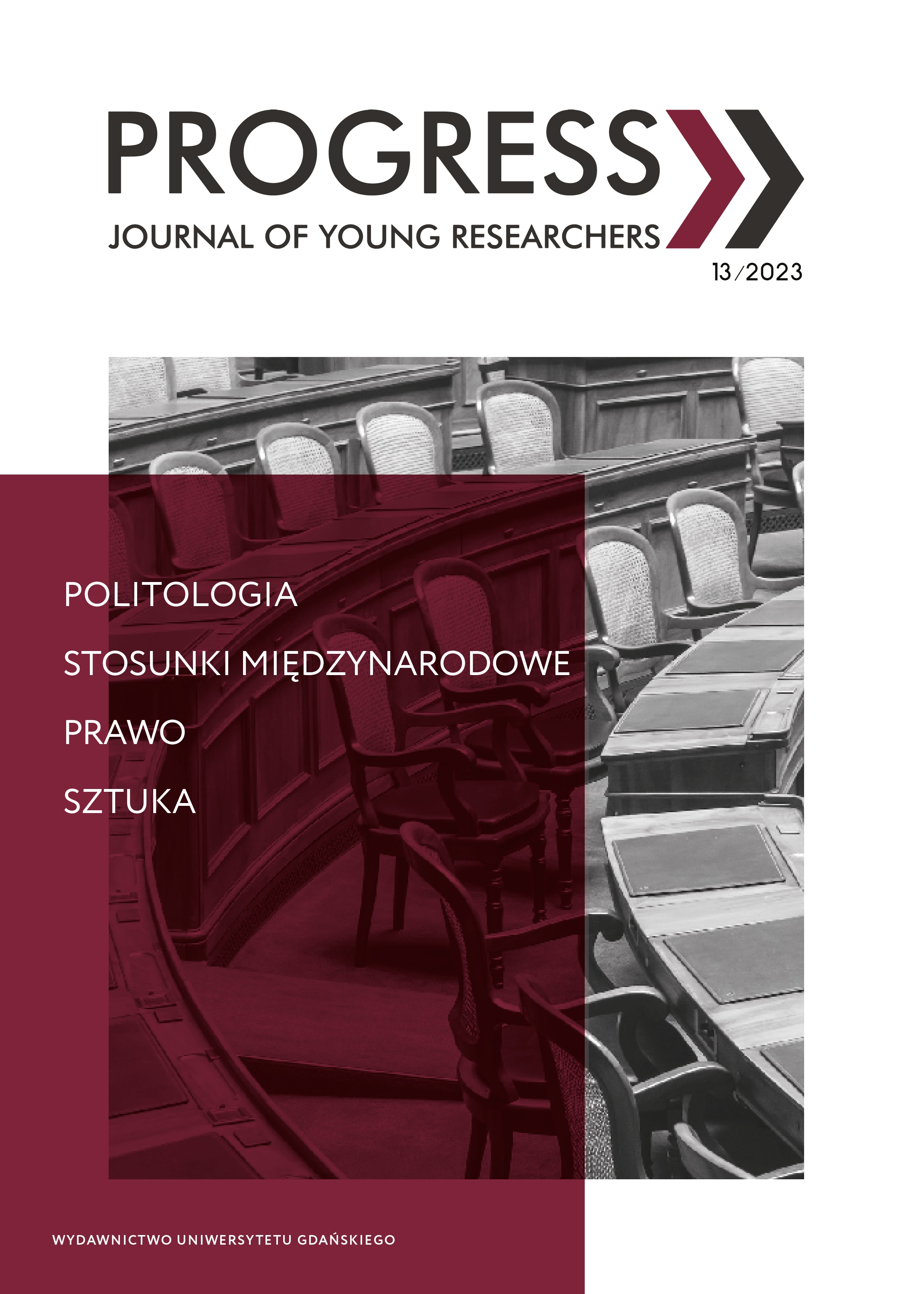Influence of socialist thought on tenentismo movement evolution in Brazil
DOI:
https://doi.org/10.26881/prog.2023.13.02Keywords:
Brazil, tenentismo, socialist thought, Luís Carlos Prestes, The Revolution of 1930Abstract
Brazil, at the turn of the 19th and 20th centuries, was a country ruled by a small elite of coffee oligarchs. Even during the Empire’s existence, liberals and army officers influenced by positivism continued to fight alongside them. On their models in the 1920s, tenentismo movement was born, questioning the existing state of affairs. Their initial program, built upon freedom and progress, evolved in a socialist direction. The Labor movement, however, developed in the country as a foreign element due to immigrants who built its first structures. The change in the character of the tenentes was influenced by their experience with the uprisings, which prompted them to question the whole political system of the country. Many socialists thought features were adapted to the demands of the movement, particularly during the 1930s. Evolution, which changed its face, became one of the reasons for its collapse due to the extreme radicalization of some tenentes views. The article is based on a historical analysis of source texts and works about the tenentismo movement. Analysis of the influence of socialist thought on tenentismo movement evolution gives an opportunity to precisely examine the reasons for its fall and make an ideological identification of the movement during its last years.
Downloads
References
Alexander R.J., 1956, Brazilian „Tenentismo”, „The Hispanic American Historical Review”, Vol. 36, No. 2.
Alexander R.J., 1973, The Brazilian Tenentes after the Revolution of 1930, „Journal of Interamerican Studies and World Affairs”, Vol. 15, No. 2.
Amado J., 1951, Rycerz nadziei, Warszawa.
Amado J., 1987, O Cavaleiro da Esperança: vida de Luiz Carlos Prestes, Rio de Janeiro.
Baretta S.R.D., Markoff J., 1986, The Limits of the Brazilian Revolution of 1930, „Review (Fernand Braudel Center)”, Vol. 9, No. 3.
Conniff M.L., 1978, The Tenentes in Power: A New Perspective on the Brazilian Revolution of 1930, „Journal of Latin American Studies”, Vol. 10, No. 1.
da Fonseca H., 1922, Topicos & Noticias, „Correio da Manhã”, 30.06.
Daniel J.M., 1946, The Brazilian Revolution of 1930, Causes and Aftermath, „The Historian”, Vol. 9, No. 1.
Dowbor W., 1981, Brazylia bez egzotyki. Formowanie się kapitalizmu zależnego w Brazylii, Wrocław-Warszawa-Kraków-Gdańsk-Łódź.
Duff E.A., 1967, Luís Carlos Prestes and the Revolution of 1924, „Luso-Brazilian Review”, Vol. 4, No. 1.
Kula M., 1987, Historia Brazylii, Wrocław-Warszawa-Kraków-Gdańsk-Łódź.
Malinowski M., 2013, Brazylia: republika. Dzieje Brazylii w latach 1889–2010, Warszawa.
Maram S.L., 1977, Labor and the Left in Brazil, 1890–1921: A Movement Aborted, „The Hispanic American Historical Review”, Vol. 57, No. 2.
Prestes L.C., 1924, Manifesto de Santo Ângelo, Santo Ângelo, https://www.marxists.org/portugues/prestes/1924/10/29.htm [dostęp: 12.11.2022].
Prestes L.C., 1925, Manifesto da Coluna Prestes, Porto Nacional, https://www.marxists.org/portugues/prestes/1925/10/19.htm [dostęp: 12.11.2022].
Prestes L.C., 1929, Manifesto de março, Santa Fé, https://www.marxists.org/portugues/prestes/1929/03/08.htm [dostęp: 12.11.2022].
Prestes L.C., 1930a, Manifesto de Maio, Buenos Aires, https://www.marxists.org/portugues/prestes/1930/05/manifesto.htm [dostęp: 12.11.2022].
Prestes L.C., 1930b, Aos Revolucionários do Brasil, Buenos Aires, https://www.marxists.org/portugues/prestes/1930/11/06.htm [dostęp: 12.11.2022].
Santa Rosa V., 1976, O Sentido do Tenentismo, São Paulo.
Siuda-Ambroziak R., 2015, Religia w Brazylii. Uwarunkowania społeczno-kulturowe, Kraków.
Zaborski S., 1973, Cukier, złoto i kawa. Dzieje Brazylii, Warszawa.
Downloads
Published
How to Cite
Issue
Section
License
Copyright (c) 2023 Author(s)

This work is licensed under a Creative Commons Attribution 4.0 International License.

 Academic Scientific Journals
Academic Scientific Journals




